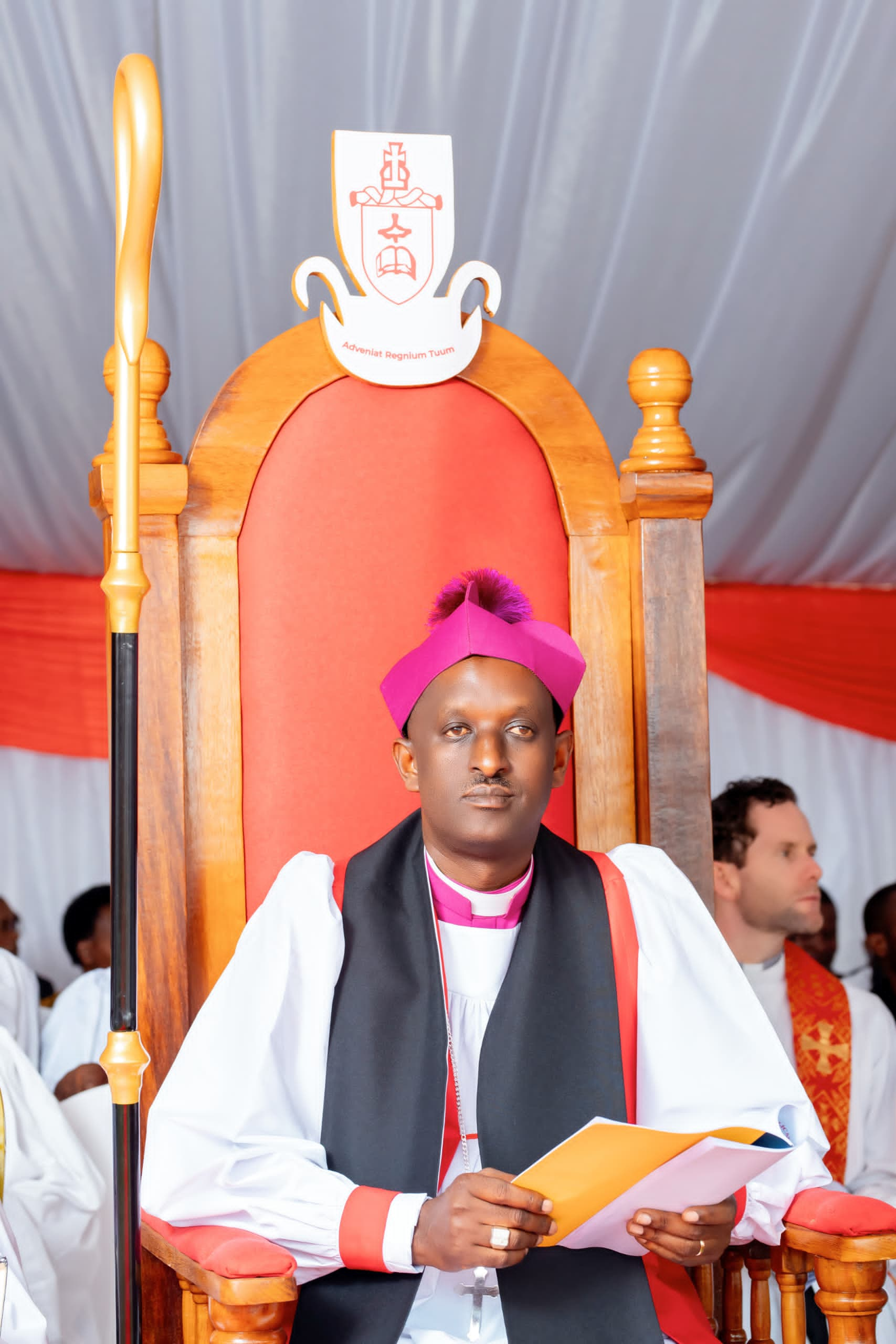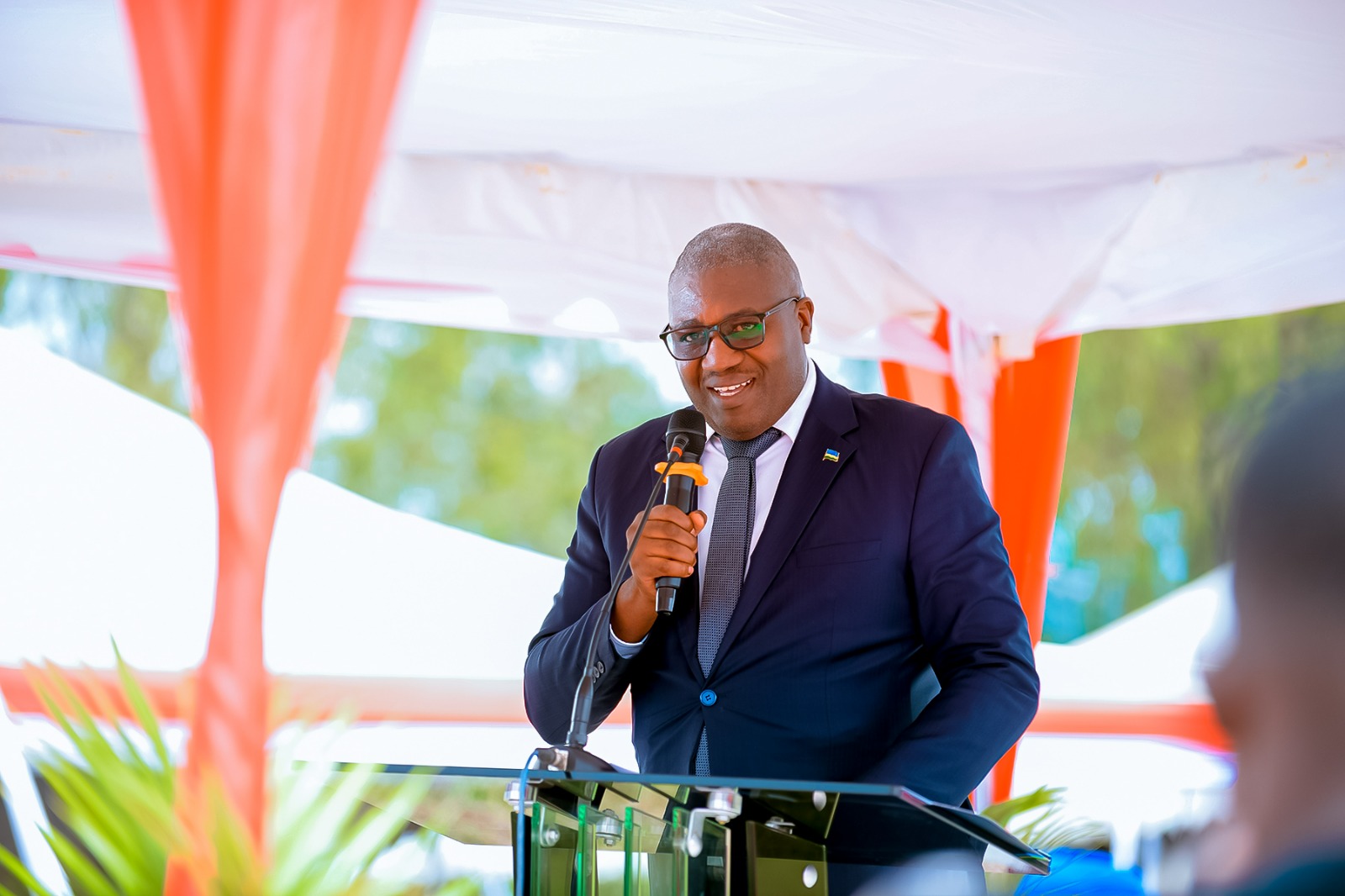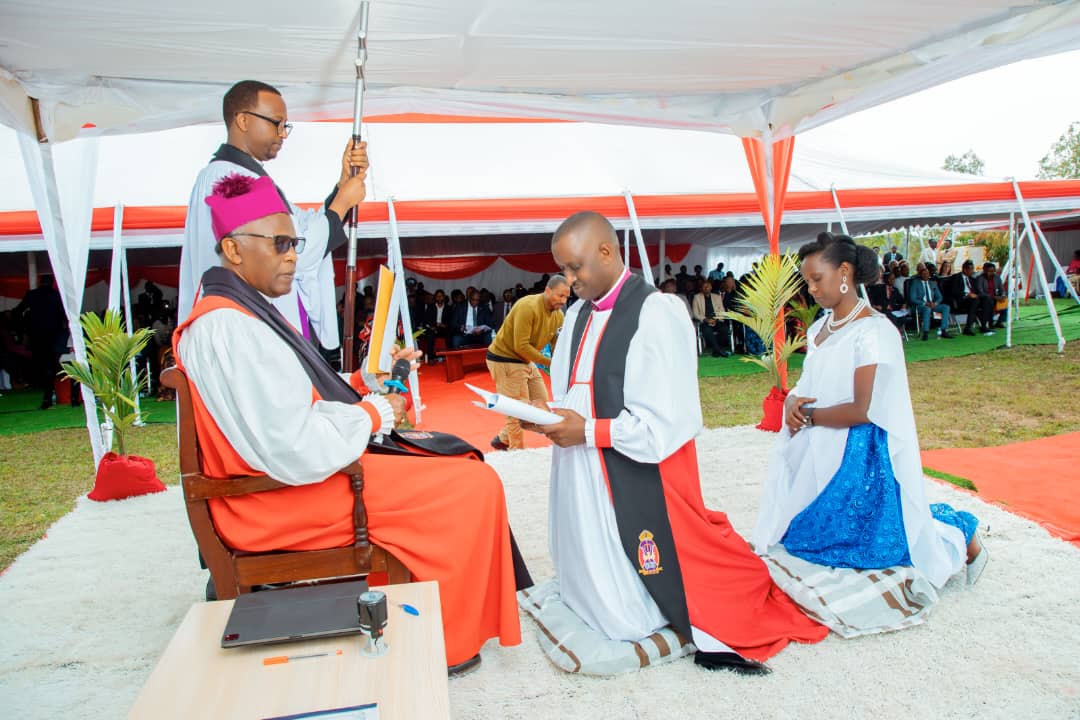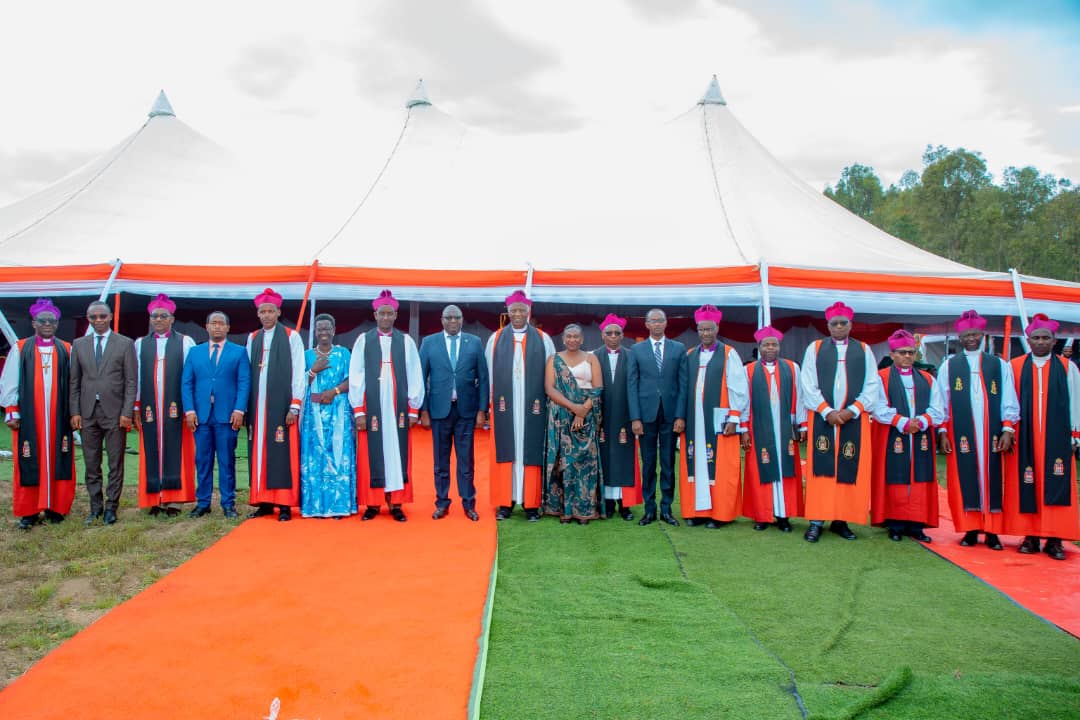
Rt Rev. Louis Pasteur Kabayiza, the 3rd Bishop of Shyogwe Diocese
On the 23rd March 2025, a historic milestone was marked in the Shyogwe Diocese of the Anglican Church of Rwanda, one of the five Dioceses members of RDIS, as Rev. Louis Pasteur Kabayiza was consecrated and enthroned as the third bishop of the diocese succeeding Rt. Rev. Dr. Jered Kalimba, who retires after an esteemed tenure of more than 27 years of dedicated service. The ceremony, officiated on the 23rd March 2025 at Shyogwe Diocese Cathedral by the Most Rev. Dr Laurent Mbanda, the Archbishop of the Anglican Church of Rwanda. It was graced by a large gathering of clergy, dignitaries, and faithful congregants, with Rwanda’s Minister of Local Government, Hon. Patrice Mugenzi, serving as the guest of honor.
This momentous transition sees Bishop Kabayiza, 49 and native of the Diocese, bringing a wealth of experience and spiritual leadership to his new role. His academic journey includes a degree in Theology from Uganda Christian University and a degree in Education from Kampala International University, where he is also pursuing a master’s in Development Planning. His deep-rooted commitment to ministry has seen him serve in various capacities, including leading the Hanika Parish in Nyanza District, acting as the Bishop’s representative across multiple parishes, and serving as the Deputy Legal Representative for the Shyogwe Diocese for nearly a decade. Additionally, he played a significant role in establishing the Hanika Anglican Integrated Polytechnic, a testimony to his dedication to education and development. The consecration ceremony was marked by prayers, hymns, and a solemn laying-on of hands, symbolizing the divine blessing and affirmation of his leadership. Religious leaders from across Rwanda and beyond graced the occasion, acknowledging the significance of this transition within the Anglican Church. The enthronement followed, officially seating Bishop Kabayiza as the spiritual leader of Shyogwe Diocese.

Rwanda Local government minister, Hon Minister Patrice Mugenzi
During the ceremony, Hon. Patrice Mugenzi, Rwanda’s Minister of Local Government, emphasized the crucial role of religious institutions in national development. He acknowledged the Anglican Church of Rwanda as a vital partner in improving the well-being of Rwandans and commended its contributions to the country's progress. "We greatly appreciate the significant role you play in implementing the government’s development agenda. The Anglican Church of Rwanda has made a meaningful contribution to our nation’s advancement," he stated. Minister Mugenzi also urged church leaders to support the government in combating misleading religious teachings that discourage citizens from seeking medical care, obtaining national identification, or contributing to health insurance programs. He emphasized the need to uphold laws governing faith-based organizations and to work together in denouncing misinformation, especially that spread through social media. "Church leaders, we call upon you to continue respecting the legal framework that governs faith-based organizations and to join hands in condemning misleading teachings that misguide believers. Let us continue strengthening the unity of Rwandans and reject all forms of division," he added. His message underscored the strong collaboration between the government and religious institutions in fostering social cohesion and holistic development, ensuring that faith continues to be a driving force for positive change in Rwanda.
In his farewell address, the outgoing bishop Rt. Rev. Dr. Jered Kalimba expressed gratitude for the strong collaboration between the diocese and the government, which contributed to its remarkable growth over his 27 years of leadership in this diocese which was founded on 09th August 1992 from Butare Diocese. He reflected on the diocese’s expansion all over the four districts in its circumscription (Kamonyi, Muhanga, Ruhango and Nyanza), noting that it had grown from 16 to 43 parishes and emphasizing the importance of continued growth. He also highlighted the significant progress in clergy education, where the number of university-trained pastors increased from just three to 40, including four with PhDs.He encouraged the new bishop to build on this foundation, ensuring that well-educated church leaders continue to guide congregants in sound doctrine and counter misleading religious teachings. Dr. Kalimba also emphasized the diocese’s investment in education, with 40 schools, including vocational institutions, a Polytechnic University (Hanika Anglican Integrated Polytechnics - HAIP), now operating under his leadership. Additionally, he reminded the faithful of the importance of economic empowerment, stating, "Tell the people of EAR Shyogwe that poverty is a sin - they must work hard and seek prosperity." The legacy of promoting both spiritual growth and socio-economic development, ensuring that the diocese remains a beacon of faith and progress. The diocese has successfully implemented various projects that promote socio-economic development, environmental sustainability, and community well-being, aligning with RDIS's mission of "a healthy soul in a healthy body." It is remarked that under Bishop Kalimba’s stewardship, Shyogwe Diocese witnessed significant growth in education, community development, and spiritual transformation. As he enters retirement, he leaves behind a legacy of impactful leadership that has positioned the diocese as a beacon of faith and progress.
The Archbishop Dr. Laurent Mbanda highlighted the church's commitment to holistic development, urging Bishop Kabayiza to continue advancing initiatives that promote education, healthcare, and community empowerment. He expressed confidence in the new bishop’s ability to lead the diocese forward and encouraged collaboration between the church, its members, and other stakeholders to further God’s work. Archbishop Mbanda also acknowledged the remarkable leadership of the outgoing bishop, Rt. Rev. Dr. Jered Kalimba.
In his first address as bishop, Kabayiza emphasized his commitment to evangelism, focusing on transforming communities through faith and development. He outlined key priorities, including addressing societal challenges such as conflicts and poverty, strengthening educational initiatives within the diocese, and enhancing youth empowerment programs. He envisions elevating institutions like the Hanika Anglican Integrated Polytechnic to international standards while fostering innovation and self-reliance among the youth. He reaffirmed his commitment to leading a spiritually strong and development-focused diocese. He emphasized that his mission goes beyond spiritual guidance, extending to the well-being and progress of the community. "Indeed, a healthy soul resides in a healthy body. My priority will be to focus on initiatives that promote community development, particularly in education, healthcare, and support for the vulnerable," he stated. The Shyogwe Diocese anticipates a future of spiritual growth and community development under Bishop Kabayiza’s leadership. His vision aligns with the church’s mission to foster faith, education, and social transformation, ensuring a lasting impact on congregants and beyond.
The strong relationship between Shyogwe Diocese and RDIS ensures that faith-based initiatives contribute to holistic transformation, addressing both spiritual and material needs. As the diocese welcomes Bishop Kabayiza, RDIS looks forward to continued collaboration, further strengthening efforts to uplift communities and enhance livelihoods across the region.
Sample photos


Enthronement of Biahop Kabayiza Louis Pasteur Hon Minister of the Local Government posing with Rwanda Anglican Bishops
Author: RDIS
